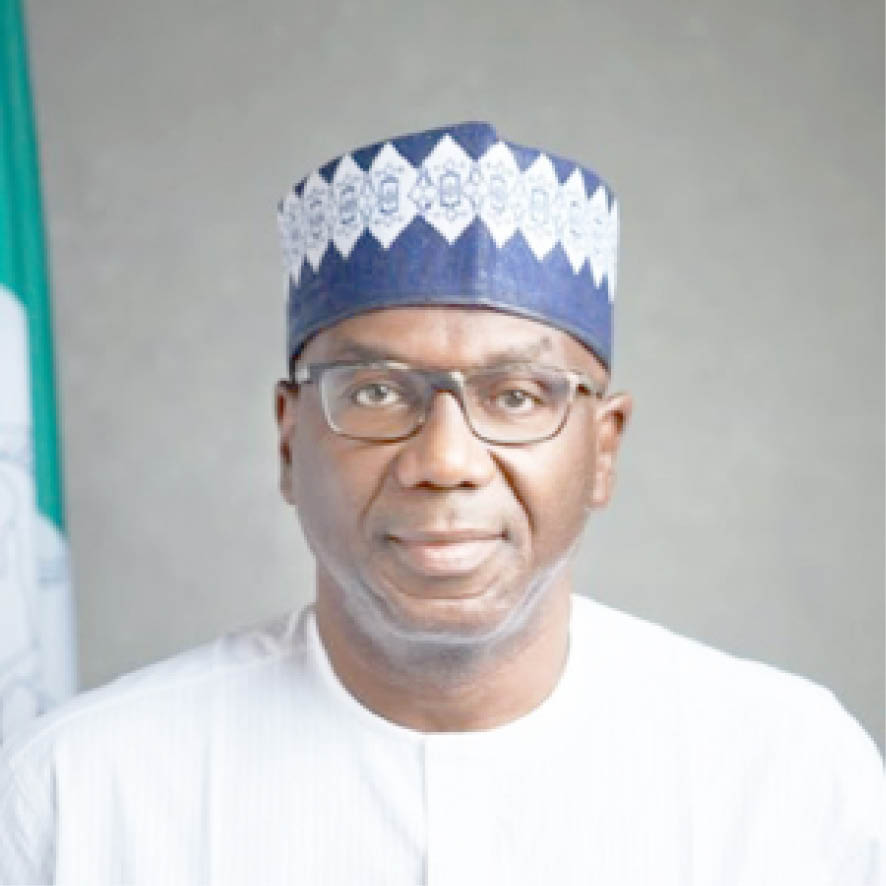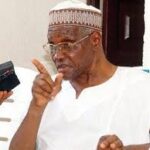By Wahab Oba
The silence of the Ilorin Emirate Descendants Progressive Union (IEDPU) on recent events in Kwara State is becoming increasingly alarming. A community that cherishes its heritage and prides itself on progress can not afford to remain voiceless in the face of actions that threaten its unity and seek to erase the legacies of its leaders.
The Yoruba proverb “Bí ẹni bá sún mọ odi, ó ye kí odi sún mọ ẹni” (If one moves closer to the wall, the wall should reciprocate), emphasizes the mutual responsibility between a community and its leadership. When the people of Ilorin are in conflict, the IEDPU can not afford to look the other way. If the union remains silent, it risks losing its relevance and credibility. The IEDPU must rise as the protective wall that promotes peace and unity within the community.
Governor Abdulrahman Abdulrazaq, the Saudauna Ngeri of Ilorin, has taken a series of actions that many regard as vindictive and politically motivated. First, he demolished Ile Arugbo, the political home of Dr. Olusola Abubakar Saraki, a revered figure who served as Wazirin Ngeri and the second Turaki of Ilorin. Then, he reversed the naming of institutions and roads that honored Saraki, effectively attempting to erase his contributions from public memory.
The recent demolition of Crystal Place, a business center owned by Wakilin Ngeri, Hon. Mashood Mustapha, another titleholder in Ilorin, without considering the plight of innocent tenants who might have just paid rent for years, reveals a troubling pattern—business and perceived political differences seem to be driving these actions.
Even more concerning is the governor’s continued disregard for Ilorin’s traditional institutions. In 2021, he unilaterally canceled the Durbar, a cherished cultural celebration, without consulting the traditional council. The IEDPU’s silence at that time may have emboldened Governor AbdulRahman to continue his destructive and persecutory actions. As the Yoruba proverb says, “Tí òdòdó bá dá, a fìbò wò ó” (When the flower wilts, people hide to observe)—silence in times of conflict only invites further trouble.
Moreover, when the governor demolished lockup shops and destroyed the livelihoods of those struggling to survive the current economic hardship, the IEDPU again remained silent, refusing to advocate for the people. Would it have been out of the ordinary, for example, if IEDPU called for adequate compensation for those affected by the demolition without sufficient notice? IEDPU’s silence has further aggravated the sense of despair in the community and left many questioning its role and commitment to the welfare of the people of Ilorin.
Two years ago, the governor was also alleged to have prevented Dr. Saraki from attending the Eid prayer and the Durbar. Yet again, the IEDPU stayed quiet. This consistent silence risks portraying the IEDPU as complicit in the erosion of Ilorin’s cultural heritage and the diminishing respect for its traditional institutions.
Communities like Offa have consistently defended their traditions, cultures, and collective integrity, demonstrating that standing for truth and justice is always the right path. Offa has made it clear that they will not allow the reputation of Saraki to be tarnished for political reasons, and they are right to speak out. Why has the IEDPU maintained a deafening silence even in the face of irrational, psychopathic allegations against the Emirate’s titleholder? Have we, as a people, lost our conscience, dignity, and integrity?
Notable religious scholars have also taken a stand, voicing their concerns about the governor’s despicable actions. They understand the danger of remaining silent in the face of injustice. The saying, “He who watches another’s secret will eventually be exposed,” warns that refusing to speak out can lead to dire consequences for the entire community.
As a vital part of the Ilorin Emirate’s progress, the IEDPU can not afford to sit on the fence. Silence in these times is not golden—it is dangerous. By not speaking up, the IEDPU risks sending the wrong message—that it condones the governor’s actions, whether politically motivated, aggressive, or disrespectful towards traditional leaders and the cultural values that unite us.
Even more atrocious is the recent diatribe on the Wazirin Ngeri by the governor’s spokesperson, Ajakaye. This was not just an insult to Saraki but also an affront to the entire Ilorin Emirate and its traditional institutions. Such behavior, which undermines the dignity of the entire community, can not go unchallenged. Had the IEDPU been more active in safeguarding the honor and dignity of the Emirate’s traditions, an uncouth Ajakaye might not have had the audacity to make such reckless and preposterous comments on the Wazirin Ngeri. The proverb “Bí won bá rán ni níṣé́ ẹ̀rú, fi ti ọmọlúwàbí ṣe” (If you are sent on an errand as a servant, deliver it with the dignity of a freeborn) reminds us that Ajakaye’s role as a spokesperson does not grant him the temerity and arrogance to make such provocative statements on a former Turakin Ngeri. A well-trained, conscientious individual would not have gone that far in the line of duty.
Now, as the sons and daughters of Ilorin face disrespect and threats to their heritage from within and without, it is imperative that the elites, religious scholars, and community leaders rise to defend their traditions. “Igbà kan kò wọlé kan” (Time does not wait for anyone). The IEDPU must recognize that silence is no longer an option. It is time to speak out boldly, to defend the legacy of the Emirate, and to ensure that Ilorin’s rich cultural and historical heritage is preserved for future generations.
The time for action is now.

 Join Daily Trust WhatsApp Community For Quick Access To News and Happenings Around You.
Join Daily Trust WhatsApp Community For Quick Access To News and Happenings Around You.


